Category: Wearables
-

Verily developing low-power health wearable
While visiting Verily last week, an MIT Technology Review journalist saw and described the company’s wearable vital tracker, called the “Cardiac and Activity Monitor” by CTO Brian Otis. Its novelty is a low-power e-paper display, which will address the universal problem of battery life. Only with guaranteed continuous measurement can meaningful data be gathered and health analyzed. The…
-
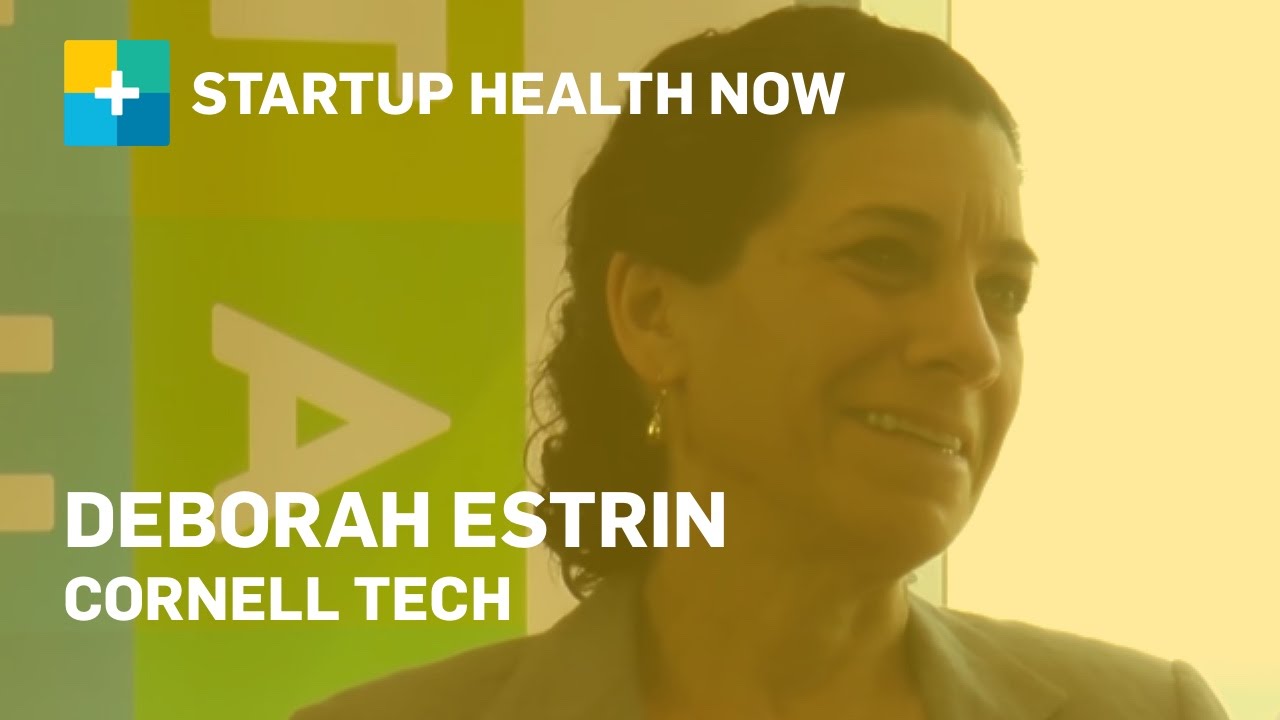
Continuously generated “small data” analysis to improve health
The discussion of “big data” analysis in healthcare continues, unabated. At ApplySci’s recent Wearable Tech + Digital Health + NeuroTech NYC conference, Cornell professor Deborah Estrin, who is also a founder of Open mHealth, described how “small data” — our digital patterns and interactions — can help physicians by creating a more meaningful representation of our…
-
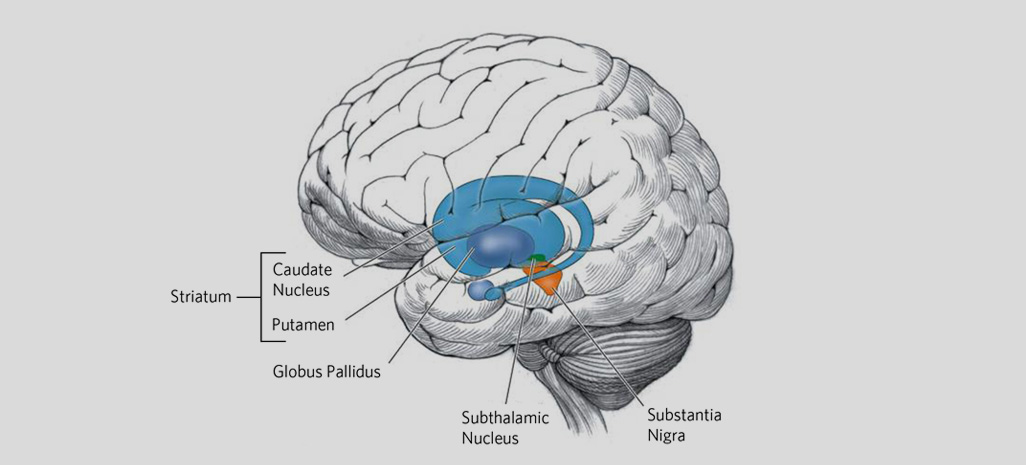
Wearable + cloud analysis track Huntington’s disease progression
In the latest pharma/tech partnership, Teva and Intel are developing a wearable platform to track the progression of Huntington’s disease. There is no cure for the disease, which causes a breakdown of nerve cells in the brain, resulting in a decline in motor control, cognition and mental stability. The technology can be used to assess the effectiveness…
-

Sanofi/Verily joint venture to fight diabetes
Big pharma + big tech/data partnerships continue to proliferate. Onduo is a Sanofi/Verily joint venture that will use each company’s expertise to help manage diabetes — Sanofi’s drugs plus Verily’s software, data analysis, and devices. CEO Josh Riff and has not announced a project pipeline, as they are taking “a thoughtful approach to finding lasting…
-
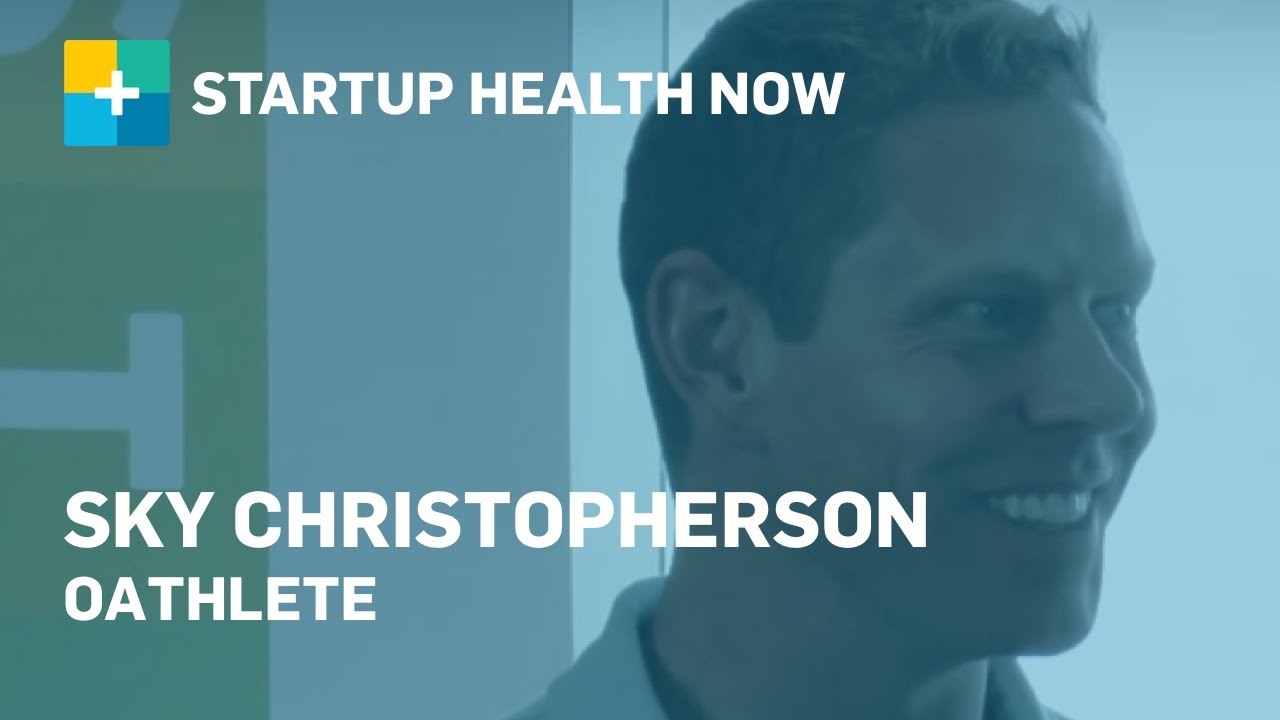
“Data, not drugs” for elite sport performance
With equal parts modesty, enthusiasm, and wearable tech expertise, Olympic cyclist Sky Christopherson came to ApplySci’s recent Wearable Tech + Digital Health + NeuroTech NYC conference to “thank this community for helping the US Olympic team before the last Olympics with a lot of the same technology to help athletes prepare, using data and not drugs.”…
-

Gait sensors predict falls, allowing preventive intervention
University of Missouri’s Marjorie Skubic has used sensors to measure gait speed and stride length, to predict falls. The goals is to use wearables and smart home technology to preserve independence and allow seniors to age in place. Data was collected at an independent-living style retirement residence. Images and nurse alert emails were generated when…
-
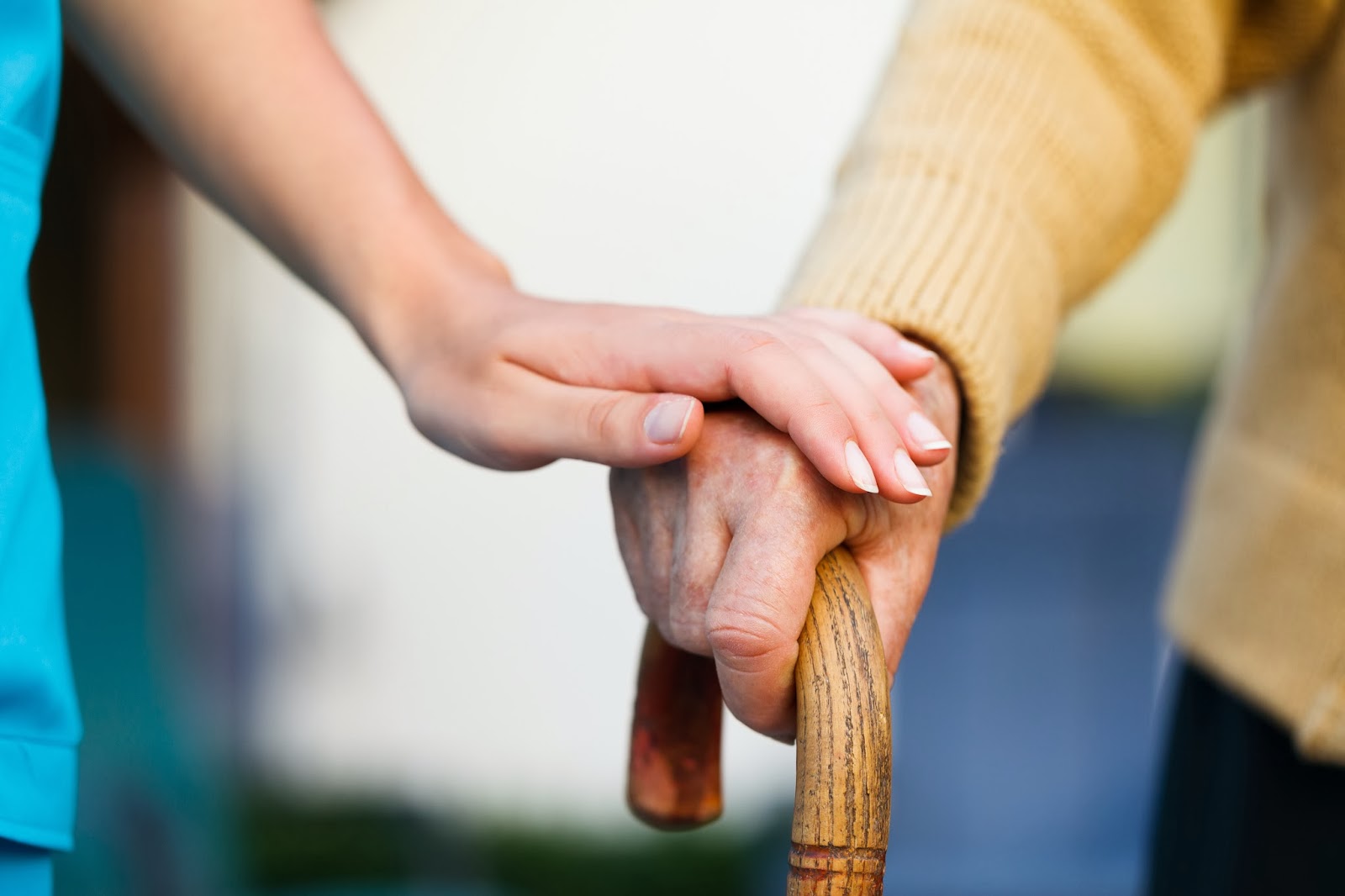
Affective computing system responds to dementia patient emotions
SenseCare (Sensor Enabled Affective Computing for Enhancing Medical Care) is a Cork Institute of Technology led project meant to teach computers how to recognize and respond to human emotions. The goal is to use applied psychology to monitor and improve the care of dementia patients. The affective computing based system will manage data from voice and face…
-

GSK/Verily “biolectronic medicine” partnership for disease management
Galvani Biolectronics is a Verily/GSK company, created to accelerate the research, development and commercialization of bioelectronic medicines. The goal is to find solutions to manage chronic diseases, such as arthritis, diabetes, and asthma, using miniaturized electronics. Implanted devices would modify electrical signals that pass along nerves, including irregular impulses that occur in illness. Initial work will…
-
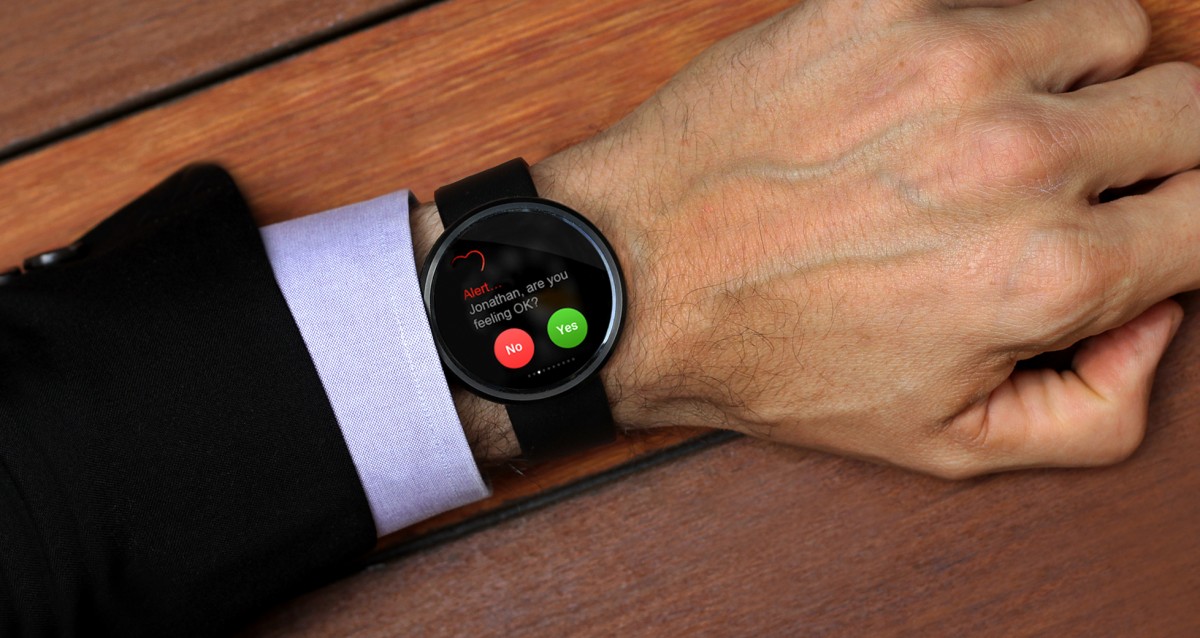
Wearable detects cardiac arrest, notifies emergency services
iBeat is a wearable emergency response system that continuously monitors the heart. Meant for seniors, it detects cardiac arrest in real time, provides alerts, and sends regular updates to caregivers. If cardiac arrest is detected, the wearer receives a call within 10 seconds. If he/she cannot be reached, an emergency contact and emergency medical services…
-
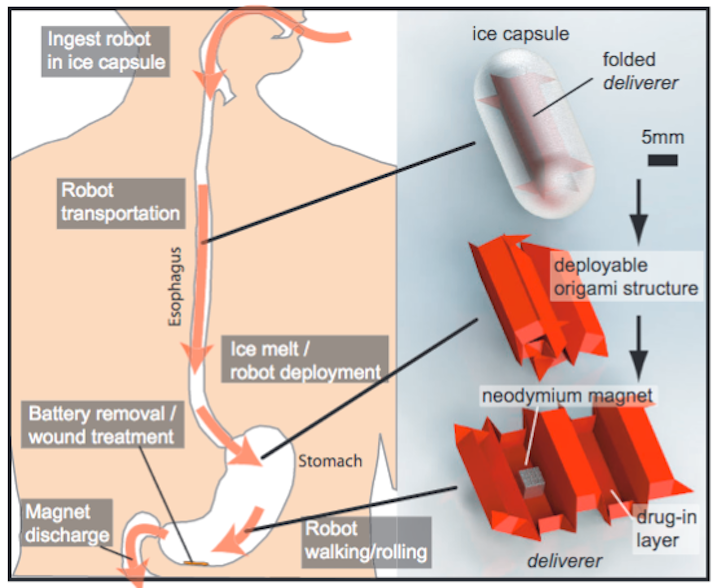
Tiny, ingestible robot can deliver medicine, patch wounds, remove objects
Daniela Rus and MIT, University of Sheffield, and Tokyo Institute of Technology colleagues have developed an ingestible origami robot designed to patch wounds, deliver medicine or remove foreign objects from a person’s stomach. The tiny robot, made of pig intestines, can unfold itself from a swallowed capsule. Steered by a doctor using external magnetic fields, the “microsurgeon”…
-

“Cognitive Dress” colors reflect observer emotions
At the Met Gala, New York’s most sought-after invitation, Karolina Kurkova wore a Marchesa dress that was powered by IBM Watson to react to social media sentiment in real-time. The “Cognitive Dress” was covered in LED embedded fabric flowers that lit in colors to reflect joy, passion, excitement, encouragement and curiosity, as expressed on twitter.…
-

Sports camera collects, overlays health data
As part of its new developer program, GoPro has partnered with Polar to overlay health data on videos. Similar to video games, sports videos will be able to display heart rate, speed, distance, and altitude. This has been presented as a fun feature, but could also provide physicians with a better understanding of one’s health in various…